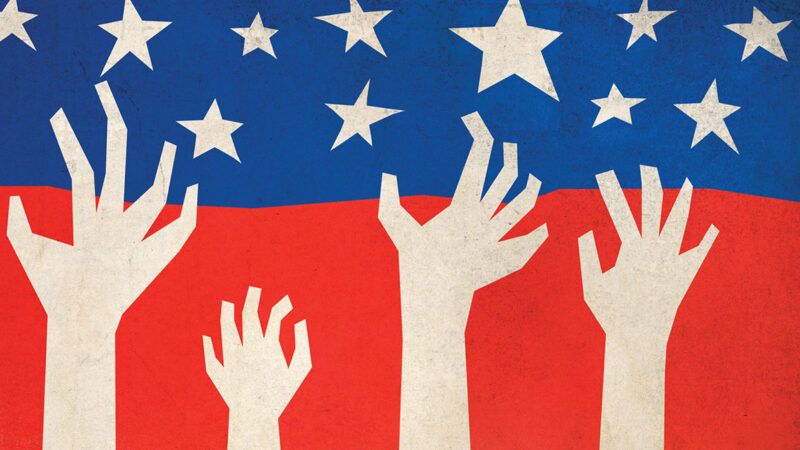Review: When Americans Turned Their Backs on Holocaust Refugees
The U.S. and the Holocaust condemns anti-refugee policies of the World War II era.

Otto Frank—father of Anne, the teenager whose posthumously published diary became standard reading for students learning about the Holocaust—fled with his family from Germany to Amsterdam in 1933. But the Nazis eventually followed him there. One target of their 1940 bombing campaign was the U.S. consulate in Rotterdam, where Frank's visa application was destroyed along with everything else.
In The U.S. and the Holocaust, a three-part PBS documentary by Ken Burns, Lynn Novick, and Sarah Botstein, the Frank family's repeatedly frustrated escape attempts epitomize the challenge facing Jews as they confronted a regime intent on eliminating them. Hitler initially sought to purify the Third Reich by pressuring Jews to emigrate. But other nations generally did not want them, which the Nazis thought proved their point. Meanwhile, Germany's invasions of other countries reduced the number of possible refuges.
The United States was an obvious candidate to accept people threatened by the Nazis. But decades of increasingly restrictive immigration policies had made that option a privilege reserved for the lucky few. They included luminaries such as Albert Einstein, but they did not include the Franks or millions of others eventually murdered by the Reich.
While Burns et al. emphasize the antisemitism that pervaded the State Department, they also note that neither Congress nor the general public was inclined to admit more than a trickle of refugees. That attitude prevailed not only after the Nazi persecution of Jews had been widely covered in the U.S. press but even after the war, when the genocidal nature of that campaign was horrifyingly clear. Notwithstanding the welcoming promise inscribed at the Statue of Liberty, Burns observed in an interview with Reason's Nick Gillespie, there has always been "a significant push" against accepting newcomers.
